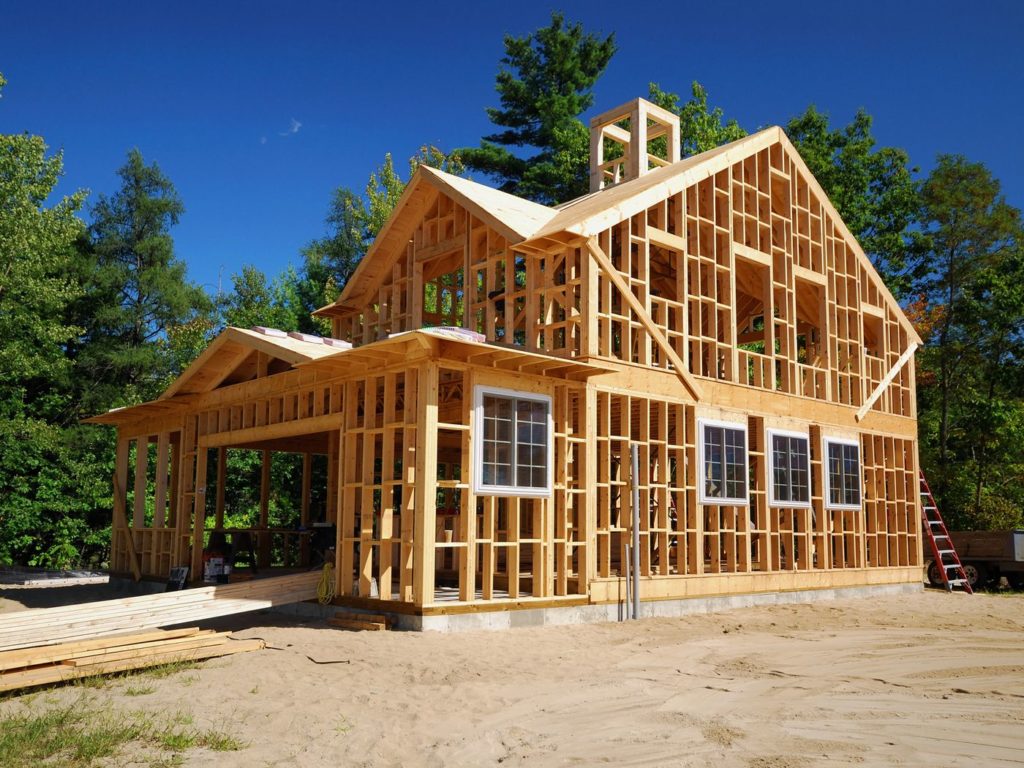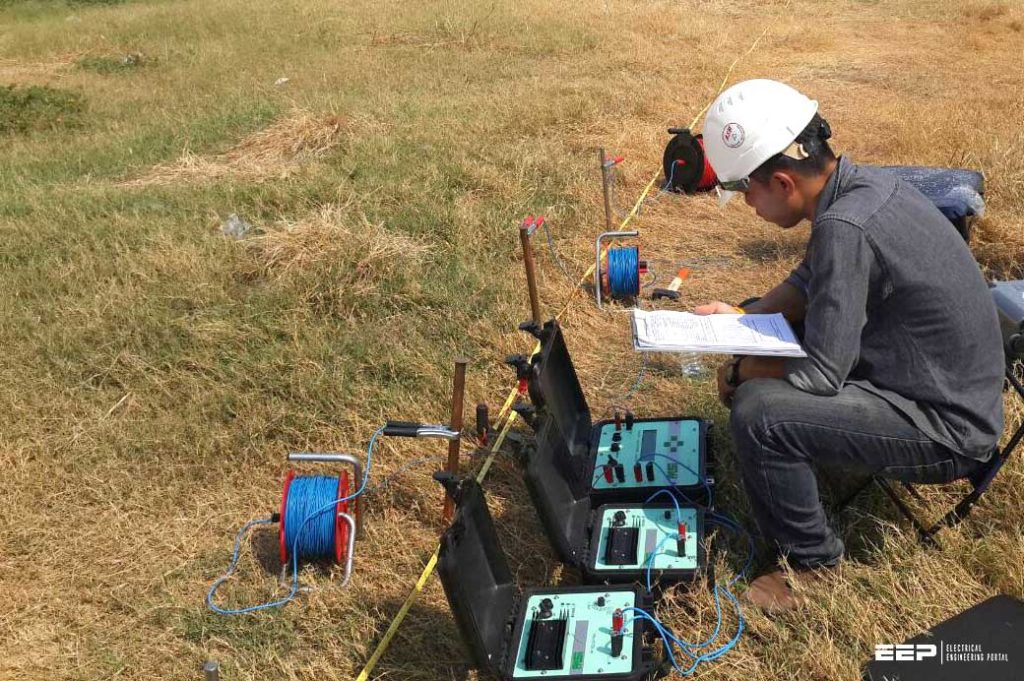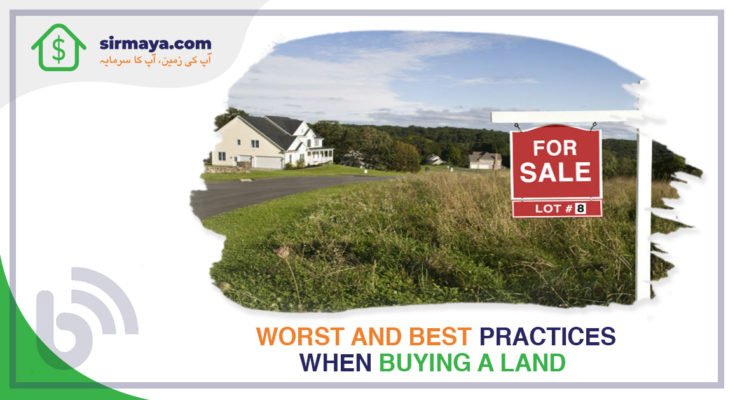Be careful about the potential obstacles you may encounter on your way to buying a land and how to overcome them intelligently.
Table of contents
- Never overlook a cheap property listing
- Comprehensively check the neighbourhood
- Never take a conventional loan to buy a plot for sale
- Work with an experienced real-estate agent
- Consider building a house of a similar value as in surroundings
- Never underestimate the cost of construction
- Never depend on the rezoning of the property
- Investigate restrictions or limitations of a property
- Beware of natural hazards and your safety
- Do environmental testing on land
If you want to build your dream home or even a private cottage, you are probably thinking about finding the perfect plot for sale. You may have already started your research, but only to find out that bare land is expensive in many parts of the country. Many projects under development may have severe limitations. This does not mean that you have to calculate or buy momentum for the next package. Instead, check out the following buying land tips to get the land you love.
Never Overlook Cheap Property Listings

Ready-to-build vacant land is rare in many communities and is often limited to plots where you can only build a cookie-cutter house that looks like any other house on the block. But when looking for land, potential buyers often overlook a unique resource: an inexpensive top! These properties are often quoted for less than the value of buying a land they are located on, and by demolishing your existing home and building a new one, you may end up gaining a lot of space in your current area.
Comprehensively Check the Neighbourhood

In addition to walking through parks and schools, find out if there are new businesses nearby, such as a shopping centre or entertainment centre. If you are buying farmland, check for potential defects such as a nearby landfill or feedlot. Search recent county records to determine if a neighbouring farm has applied for a zoning change to install a wind farm or find information on county issues that may be unacceptable and difficult to live near.
Never Take a Conventional Loan to Buy a Plot For Sale

Banks and lending companies shy away from lending money in exchange for vacant land and plots because they cannot sell these loans on the secondary mortgage market to financial institutions. If the bank can’t sell your loan, it won’t get its money back, which means the bank is in danger if you decide to leave.
Some lenders may require a sizeable down payment to mitigate the risk. Up to 50 per cent of the purchase price, but others may refuse a loan directly for bare land. You may need cash to buy a plot for sale, or you may be able to negotiate a financing deal for the seller, sometimes referred to as a “land contract,” which means that the seller often allows you to pay for buying a land in instalments.
Working With an Experienced Real Estate Agent

You are more likely to find a suitable plot if you work with an agent who buys and sells plots and land rather than an agent specializing in existing homes or commercial real estate. An experienced agent can monitor suitable soil and alert you when something new appears on the market. In addition, you will have an expert familiar with the various types of land purchase financing.
Consider Building a House of a Similar Value
For the best long-term investment, build a home at a cost comparable to a home near you. If you are making a home in an area where other homes are selling for less price, it may be challenging to find a buyer for it if you decide to sell it later. In addition, the lender may be reluctant to finance a home in a price range. That does not match the market value of other homes in the neighbourhood. If you have chosen a specific home plan, select land in an area with similar value houses.
Never Underestimate a Construction Cost

Unless you’re looking for top-notch beachfront properties, land value is usually the least expensive part of any construction project. If you are building on underutilized land, you should also think about bringing communications to the construction site. And organizing a private sewerage system and a private entrance.
Never Depend on the Rezoning of a Property

Buyers who are enthusiastic about construction are often very reluctant to buy a specific lot, telling themselves that they can solve zoning problems. Unfortunately, there is no guarantee that you will be able to convert the land into an industrial or strictly agricultural residential area after purchasing it – no matter what the current owner tells you.
If the land in question is not currently intended for your desired purpose, make an offer, but make the sale conditional upon receiving a redistribution permitted. That way, if the zoning authority rejects your application, you won’t be stuck with an unusable piece of land.
Investigate Restrictions or Limitations of a Property
It’s time to find out if the plot has any covenants or ordinances limitations before proposing. In some rural areas, you must own a minimum size, before you can get a permit to build a home on it. In neighbourhood developments, there can be legal easements and setbacks that limit the construction site and the size of the house.
Other restrictions can determine the type of curvature you can give your home. Or how steep the roof needs to be. Agreements and regulations can be very restrictive, so check with your property developer. Or county registry office to determine the extent of any obstacles.
Beware of Natural Hazards and Your Safety

No matter how beautiful a piece of buying a land is, beware of hidden natural hazards that can affect your ability to build a home and your safety. If the land is in a floodplain, you will not be able to obtain a building permit. If you do, you will have to purchase flood insurance, depending on the value of the house. And the risk of flooding.
Other natural hazards that can hinder construction or reduce the safety and value include:
- Unstable soil.
- Proximity to a rift zone.
- Heavily eroded soil.
- Increased susceptibility to forest fires.
Do Environmental Testing on Buying a Land

In an approved development, the developer is likely to undergo environmental testing as part of the divisional and laminator process. However, this is an entirely different story if you are buying a plot for sale in a rural area. Or a large area in a city that has been empty for several years.
Soil or groundwater contamination, such as if vacant land was once used for a gas station or shed. It can prevent you from obtaining a building permit or threaten your family’s health in the future.
For more real estate blogs, visit: https://www.sirmaya.com/blog/





